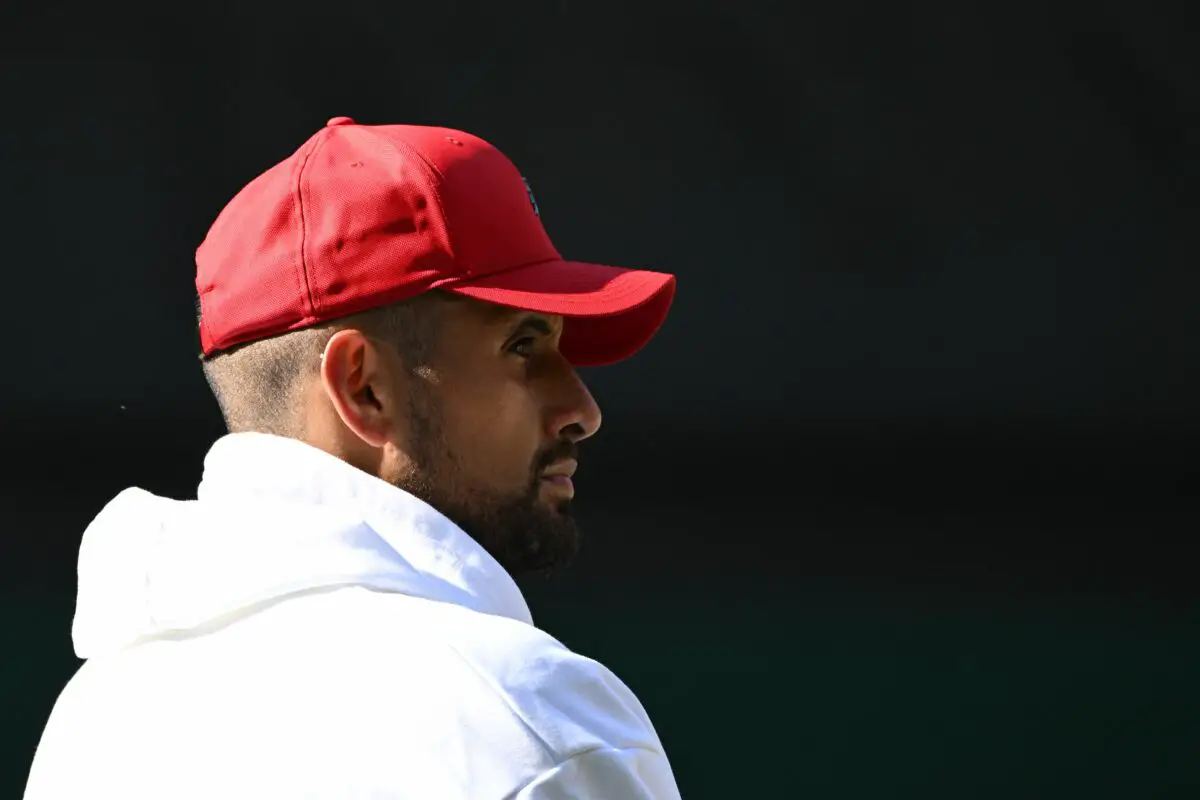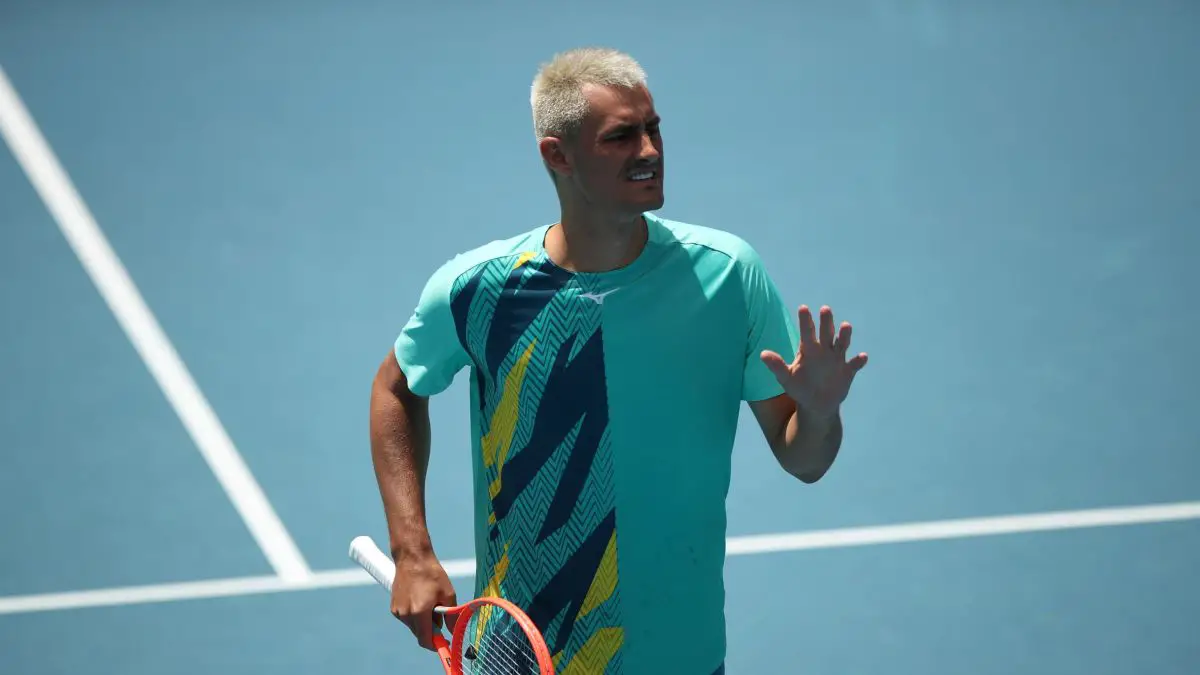French Tennis star Benoit Paire has been accused of match-fixing – here’s everything you need to know
Benoit Paire’s actions at the Malaga Challenger event have generated controversy and disappointment among tennis fans and the tennis community. Deliberate underperformance and early retirements are against the spirit of the sport and can have a negative impact on the tournament and its integrity.
It’s essential for players to compete to the best of their abilities and respect their opponents and the fans who support them. Such incidents can lead to discussions about sportsmanship and the need for stricter regulations in tennis.

The described actions by Benoit Paire, including the lackluster drop shot attempt and the intentional shot out of bounds, do indeed raise concerns about his sportsmanship and commitment to the match. Such behaviors are not in line with the principles of fair play and competition in tennis. It’s important for players to give their best effort on the court and uphold the integrity of the game. These actions can understandably lead to frustration and disappointment among fans and fellow competitors.
Benoit Paire has addressed match-fixing allegations following his dismal performance in the Malaga Challenger
Benoit Paire’s recent admission about his mental well-being sheds some light on the challenges he may be facing in his tennis career. It’s not uncommon for athletes to go through difficult periods, and mental health can significantly impact their performance on the court. It’s important that he’s opening up about his struggles, as this can help raise awareness about the pressures athletes face and the importance of mental health support in professional sports. Hopefully, he can receive the necessary support and make a comeback when he’s in a better place mentally. Tennis fans and the tennis community should be empathetic and supportive during this challenging time for him.

It’s commendable that Benoit Paire is addressing his mental health struggles and acknowledging the challenges he’s facing in his tennis career. Mental health is a crucial aspect of an athlete’s well-being, and it’s important for individuals to seek help and support when needed. Paire’s determination to find solutions and rediscover his passion for the game is a positive sign, and many in the tennis community will undoubtedly wish him the best on his journey toward recovery and enjoyment of tennis once again. It’s a reminder of the human side of professional athletes, and their resilience can be an inspiration to many.
Why is ‘tanking’ often referred to as ‘match-fixing’ in Tennis?
Tanking in tennis, which involves giving up or not giving one’s best effort during a match, is strongly discouraged and goes against the principles of fair play and sportsmanship in the sport. Both the ATP and WTA have rules against such behavior, and it can lead to penalty points and fines for the players involved.
The subjectivity of determining whether a player is tanking or genuinely struggling can make it a challenging issue to address. Officials often rely on a player’s body language and overall demeanor on the court to make this judgment. While some players may try to mask their lack of effort by claiming injury or illness, it’s important for the tennis community to uphold the integrity of the game and discourage such behavior. Maintaining the competitive spirit and giving one’s best effort throughout a match is not only a requirement but also an expectation from both fans and fellow players, as it ensures the integrity and excitement of tennis as a sport.
What are some previous instances of ‘tanking’ in Tennis?
The incident involving Nick Kyrgios at the 2016 Shanghai Masters is a memorable example of a player facing sanctions for a lack of effort on the court. Kyrgios’s actions, including tanking and his interactions with the crowd and officials, led to repercussions. Crowds at tennis events are passionate and invested in the matches they watch, and they expect to see players giving their best effort. When a player appears to give up or not try their best, it can understandably lead to disappointment and frustration among fans, who have paid to attend and support the sport. In such cases, vocal disapproval from the crowd can be a natural response.

The combination of tennis officials’ scrutiny and the expectations of passionate fans creates a strong incentive for players to maintain their competitive spirit and give their all during matches, contributing to the overall integrity and enjoyment of the sport.
Jimmy Connors, Rafael Nadal, and Novak Djokovic are known for their exceptional fighting spirit and determination on the tennis court. They’ve consistently demonstrated their commitment to giving their best effort in every match, no matter the circumstances, which has earned them admiration from fans and the tennis community.
On the other hand, Nick Kyrgios and Bernard Tomic have had their share of controversies related to effort and commitment during matches. While Kyrgios has shown improvement and a more focused approach to his game in recent years, Bernard Tomic has faced criticism and earned the nickname “Tomic the Tank Engine” due to perceived lack of effort and commitment in certain matches. Playing in lower-tier events like ITF and Challenger Tour can provide opportunities for players to rebuild their careers and regain their competitive edge.

The contrasting approaches of these players highlight the diverse personalities and attitudes within the world of professional tennis, but it’s the commitment to giving their best on the court that often distinguishes the greats from the rest.
More Tennis news
- Borna Coric 2022 – Net Worth, Salary, Records, and Endorsements
- Novak Djokovic’s brother makes Roger Federer promise ahead of Serbian Open
- Naomi Osaka responds to botching Jennifer Brady’s name after AO Open final win
Follow our dedicated Tennis page for instant Tennis news and updates

